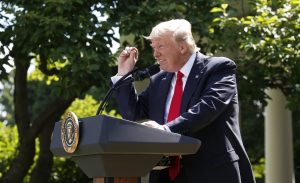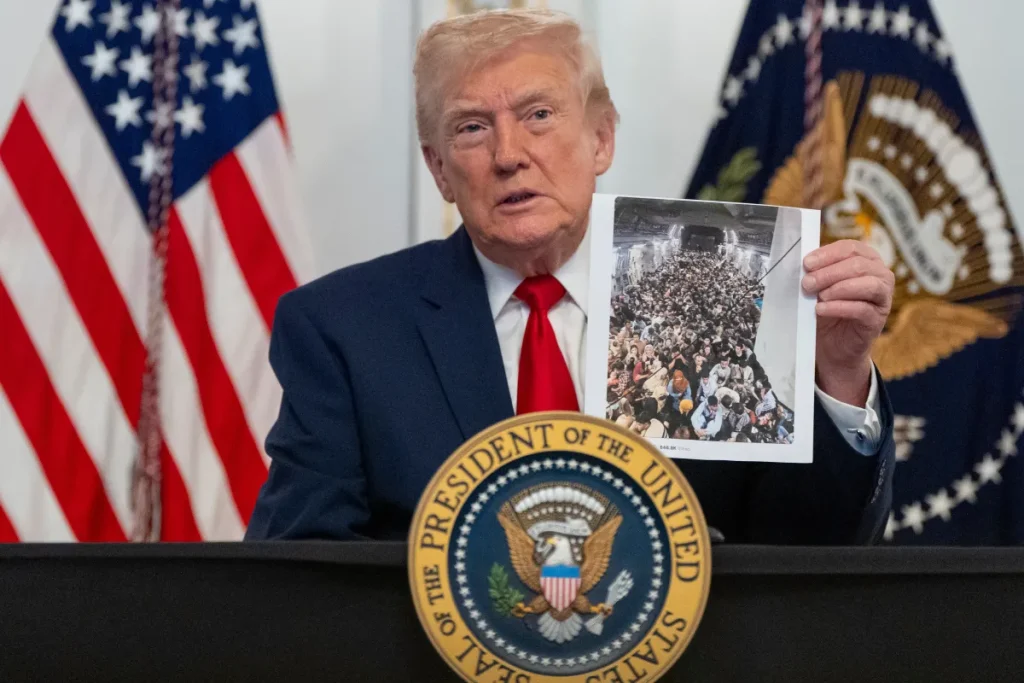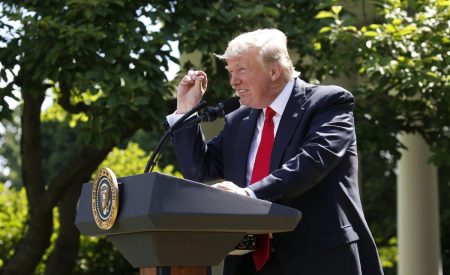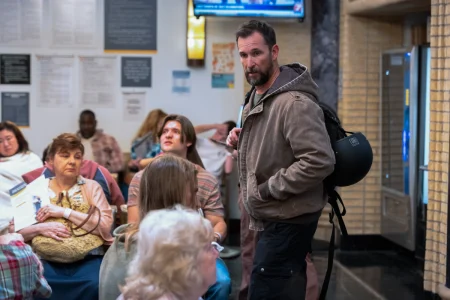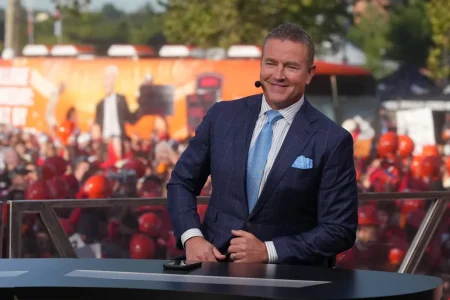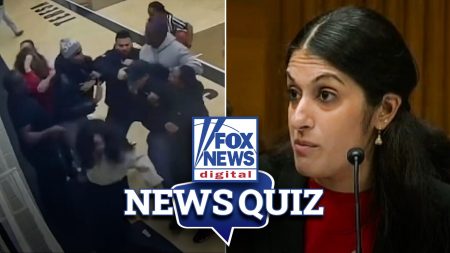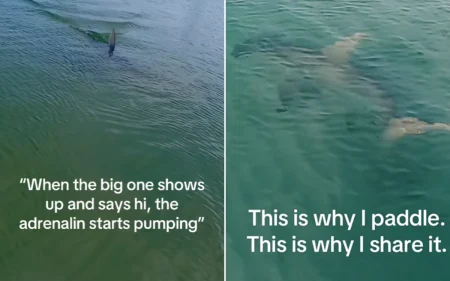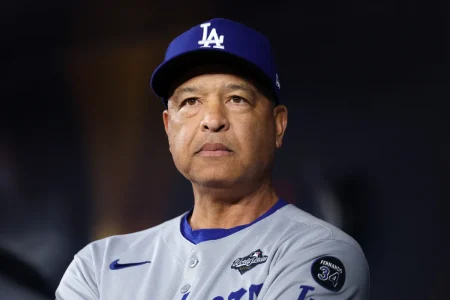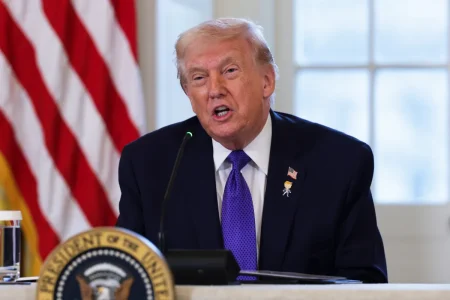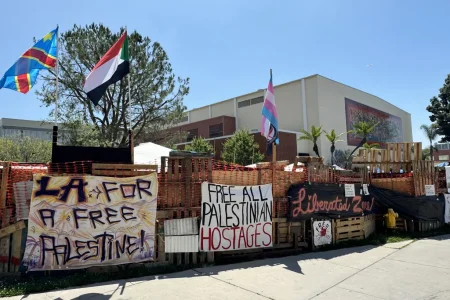Trump Suggests National Guard Success May Have Triggered D.C. Shooting
In the wake of a tragic shooting that left one National Guard member dead and another critically wounded near the White House, President Donald Trump has offered his own theory about the motive behind the attack. Speaking during his Thanksgiving address to troops from his Mar-a-Lago estate, Trump suggested the shooter may have been “upset” by the effectiveness of National Guard operations in Washington, D.C. “We’ve had very little crime,” Trump stated in his video address. “This happened, I assume, because [the National Guard’s D.C. deployment] was so effective, and maybe this man was so upset because he couldn’t practice crime.” This statement comes amid a period of heightened security concerns in the nation’s capital, where Trump has deployed thousands of National Guard members as part of his administration’s efforts to address crime and immigration issues in the district.
The incident has claimed the life of Sarah Beckstrom, a 20-year-old West Virginia National Guard member, while her colleague Staff Sgt. Andrew Wolfe, 24, remains hospitalized in critical condition. The suspected shooter, Rahmanullah Lakanwal, a 29-year-old Afghan national residing in Washington state, allegedly drove across the country before carrying out what officials described as an “ambush-style” attack using a .357 Smith & Wesson revolver. Lakanwal was wounded and apprehended by responding troops following the shooting. The attack targeted members of a 2,200-strong National Guard deployment that the Trump administration has repeatedly praised as successful in reducing crime in Washington, D.C. Just one day before the shooting, during the traditional turkey pardoning ceremony, Trump had declared that Washington was “now considered a safe zone” that hadn’t “seen a murder in six months”—a claim that contradicts Metropolitan Police Department data showing 62 homicides in the district since May.
The shooting has intensified scrutiny of U.S. immigration and refugee policies, with particular focus on Operation Allies Welcome, the Biden-era program that brought approximately 76,000 Afghans to the United States following the 2021 withdrawal from Afghanistan. Lakanwal entered the country through this initiative, having worked with U.S. forces including the CIA in Afghanistan. According to CIA Director John Ratcliffe, Lakanwal was “a member of a partner force in Kandahar,” though his work reportedly ended shortly after the evacuation. While the Trump administration has criticized the Biden administration for admitting “unvetted” Afghans, reports indicate that Lakanwal’s asylum application was actually approved earlier this year under Trump’s leadership. This detail has added complexity to the political narrative surrounding the case, even as Trump declared, “We have no greater national security priority than ensuring that we have full control over the people that enter and remain in our country. For the most part, we don’t want them.”
The response to the attack has been swift and forceful, with Defense Secretary Pete Hegseth announcing an additional deployment of 500 National Guard members to Washington, D.C. “It will not stand, and that’s why President Trump has asked me, and I will ask the secretary of the Army to [tell] the National Guard to add 500 additional troops,” Hegseth stated following the shooting. The FBI’s Joint Terrorism Task Force has taken the lead in investigating potential motives, with officials considering the possibility that this was an act of international terrorism. Attorney General Pam Bondi has made her intentions clear, stating, “I’ll tell you right now, we will do everything in our power to seek the death penalty for that monster, who should not have been in our country.” These strong statements reflect the administration’s hardline stance on both immigration and violent crime.
The shooting has elicited expressions of grief and outrage from officials across government. President Trump characterized the attack as an “atrocity” and promised that the perpetrator would pay “the steepest possible price.” General Steven Nordhaus, chief of the National Guard Bureau, stated that they were “devastated by this senseless act of violence.” The personal stories of the victims have largely been overshadowed by the political dimensions of the case, though their sacrifice has been acknowledged by officials at the highest levels. Beckstrom and Wolfe were part of the broader National Guard deployment that has become a signature element of Trump’s domestic security approach in Washington, D.C., which he has repeatedly characterized as successful despite conflicting crime statistics from local authorities.
As the investigation continues, several questions remain unanswered, including when the 500 additional National Guard troops will arrive in Washington and which states they will come from. The FBI continues to probe deeper into Lakanwal’s background and potential motives, while the case progresses through the justice system with Attorney General Bondi pursuing capital punishment. The tragedy has become entangled in larger debates about immigration policy, refugee vetting procedures, and the appropriate role of military personnel in domestic law enforcement. It also highlights tensions between federal and local authorities regarding public safety approaches in Washington, D.C. For now, the National Guard presence in the capital will increase, reflecting the administration’s commitment to its security strategy despite this shocking attack on the very personnel tasked with implementing it.
